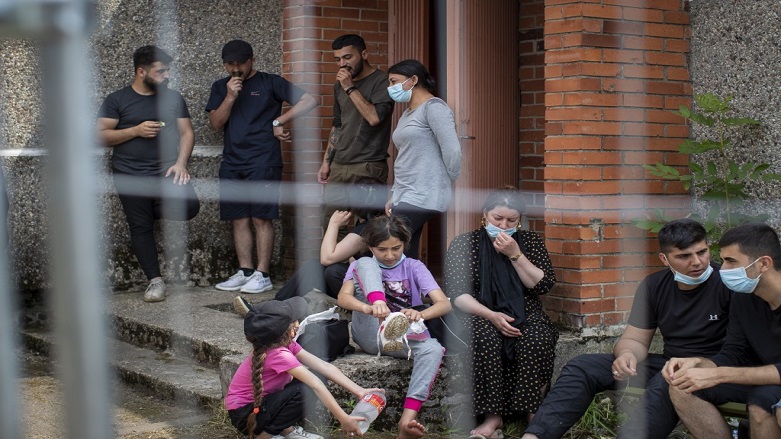Latvia declares emergency after influx of migrants, mostly from Iraq

ERBIL (Kurdistan 24) – The government of Latvia declared a local state of emergency along its border with Belarus on Wednesday in response to a spike in migrants crossing into its borders just as neighboring Lithuania passed a law authorizing the construction of a border fence with the same objective.
Over the past 24 hours, roughly 200 migrants, most of them Iraqi, crossed into Latvia, a member state of both the European Union and NATO with a population of 1.9 million.
"The state of emergency means that the border between Latvia and Belarus will be closed practically to everyone," Latvian Prime Minister Arturs Krisjanis Kariņa said after the government agreed to the measure that began on Wednesday and will be in effect until Nov. 10.
Regarding the new Lithuanian law outlining the construction of the border fence, the nation's Interior Minister Agne Bilotaite said, "We must have strong and reliable borders with Belarus as soon as possible."
Brussels has accused Belarusian President Alexander Lukashenko of deliberately encouraging the crossing of migrants, most of whom are Iraqis, in response to the severe sanctions imposed on his regime.
Read More: More than 1,500 Iraqis trapped on border of Belarus and Lithuania
This week, Lithuania, which provided strong support and sanctuary to the Belarusian opposition, began working to return the migrants, after more than four thousand people entered onto its soil through Belarus since the beginning of the year.
Poland, which shares a border with Belarus, has registered 349 immigrant arrivals since Friday.
On Tuesday, the European Union announced a significant decrease in the number of migrants arriving in Lithuania, after Iraq suspended flights to Belarus at the request of Brussels and Vilnius.
European Union ministers are due to discuss the issue next week.
Editing by John J. Catherine
